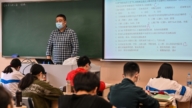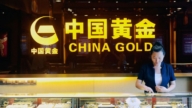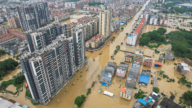【新唐人2011年3月7日讯】日前在中国发生的所谓中国版“茉莉花革命”,虽然都是虚惊一场,但从现场派驻大批警力维安来看,中共已到草木皆兵。中共国家主席胡锦涛的“社会治理”八条,其中一条就是“加强网络管理”。北京也将实施以手机监控市民出行,并建立巡逻警务站及时掌握街头情况。
网路世界无远弗届,随着网路的日益普及,渐渐在中国的政治、经济和社会生活中扮演着日益重要的角色,成为公民行使知情权、参与权、表达权和监督权的重要管道。网路快速的传播力却反而成了当局的隐忧。各种管制办法齐出,最后还要通过手机定位做到全面掌控。
《自由亚洲电台》报导,两次的“茉莉花聚会”,让中共当局如临大敌般,扩大防范层级,对媒体采访甚至不惜暴力相对。由于官方媒体很少报导,中国民众大都不清楚利比亚的反政府示威引发了血腥镇压。《新华社》在报导时对于安理会谴责利比亚当局,对平民的暴力镇压可视为是“反人类罪”行为却刻意回避。
在美国的中文期刊《北京之春》主编胡平对此表示,中国官方媒体在报导利比亚事件上的避重就轻、说明了中国当局内心充满了恐惧和担忧。
《澳洲日报》报导,当前,中国已经进入社会矛盾凸显期,各种矛盾交织、累积,很容易因利益相关而形成共同利益诉求。
报导说,为了严控互联网,中国推出的管制互联网法律法规有60几部,但成效还是不理想。网上传言:“共产党决心要预防社会动乱,并且限制本国公民抱怨政府寻求改革的努力。北京通常遮罩包括《美国之音》在内的新闻机构的网站,也不准网民谈论被视为是敏感的话题,例如埃及的群众抗议迫使穆巴拉克下台的事件,‘茉莉花革命’也被列为网络敏感词汇”。
据《北京晨报》3月2号报导,北京将以中国移动的北京1,700万手机用户资料为基础,建立“北京市市民出行动态信息平台”,为政府部门规划交通布局、人口管理等服务。
日前,在中国多个网站发出了一篇没有署名的通告,通告内容规定:禁止利用互联网、通讯工具、媒体等方式,从事组织、集会、游行等行为,对构成犯罪的,司法机关将追究刑事责任。
新唐人记者李庭、王明宇综合报导。
“Jasmine Effects”: Citizens are Monitored via Mobile Phones
Recently, the so-called Chinese “Jasmine Revolutions"
turned out to be false alarms. Heavy police presence
shows CCP to be in a state of extreme nervousness.
President Hu Jintao’s “social governance" principles
includes “the enhancement of network management."
Beijing will monitor citizens via cell phones
and establish police stations to control the streets.
With its increasing popularity among the Chinese,
the Internet plays an important role in their social life.
It is an important pipeline as China’s citizens exercise
their right to information, participation and expression.
However, the rapid spreading of the Internet worries
the authorities that impose various control measures.
For a full control, now there is cell phone positioning.
According to Radio Free Asia,
the “Jasmine Rallies" alerted China’s authorities greatly.
They expanded security and cracked down on the media.
Due to lack of official reports, most Chinese don’t know
that Libya’s anti-tyranny protests were violently repressed.
When CCP’s Xinhua reported on the UN condemnation
of the Libyan authorities, it deliberately avoided
their “crimes against humanity" of slaughtering civilians.
Hu Ping, editor-in-chief of U.S.-based Chinese journal
“Beijing Spring", said, the way the official media report
the Libyan issues shows that the authorities
are filled with fear and worries.
According to the Daily Chinese Herald in Australia,
China has entered a period of prominent social conflicts.
The accumulation of intertwined conflicts makes it easy
to form public demands based on common interests.
The article said that to strictly control the Internet,
Chinese authorities launched 60 Internet regulations,
but with limited effects. There are many online rumors.
“CCP is determined to prevent social unrests
and limits the citizens’ efforts to seek political reforms.
Beijing blocks news websites, including VOA.
It doesn’t allow netizens to discuss sensitive topics,
such as Egypt’s mass protests that forced Mubarak out.
“Jasmine Revolution’” is also listed as a sensitive term.
Beijing Morning Post reported on March 2,
based on the data of 17 million China Mobile users
in Beijing, “an info platform containing locations of
Beijing citizens” will be established to serve Beijing
government’s traffic planning and
its control of the population.
Multiple Chinese websites issued an unsigned notice,
claiming that the use of Internet, communication tools
and the media to organize assemblies and parades
are prohibited and will be held criminally responsible.
NTD reporters Li Ting and Wang Mingyu





























